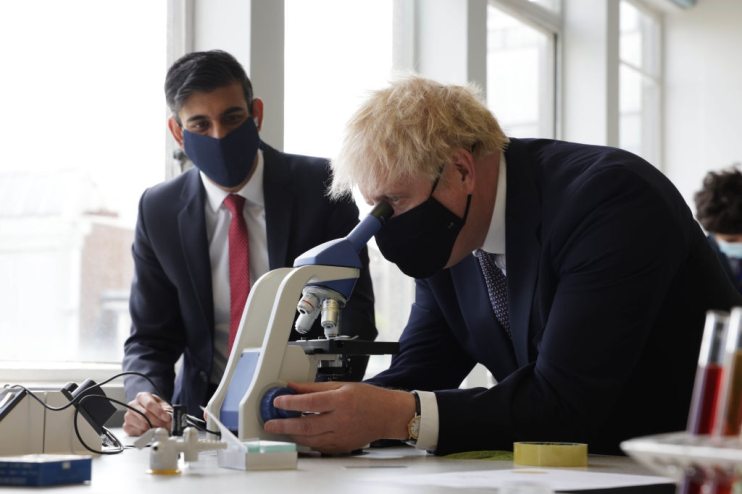Triple-lock: How Boris and Rishi can both have their cake and eat it

Is the triple-lock on its last legs? That question seems increasingly relevant in Whitehall.
Average earnings rose by 8.8 per cent last month, including bonuses, according to figures published by the ONS yesterday. Moreover, earnings figures released next month are expected to set next year’s increase in the State Pension.
So why is this relevant? The high level of earnings growth has led to calls to scrap the state pension triple-lock, which increases pensions by the highest of earnings, inflation and 2.5 per cent.
‘Existential threat’
Tom Selby, head of retirement policy at AJ Bell, said last night that “the triple-lock is facing an existential threat because the high level of earnings growth in the economy is set to push the state pension up by around 8 per cent next year.”
This poses a problem because the Conservative Party committed to maintaining the triple-lock in their manifesto. However, an 8 per cent rise will put huge pressure on the public finances at a time when the Treasury is already staring down a fiscal black hole, he added.
“The triple-lock is also politically controversial, particularly against the backdrop of the many young people who have lost their jobs because of the pandemic,” Selby continued.
“That’s particularly the case when you consider that the average earnings figure is so high because it’s been distorted by the pandemic, largely by the furlough scheme,” he explained.
Selby pointed out that, historically, it’s the May to July earnings growth figure that’s been used for the triple-lock calculation, and expectations are this could be around 8 per cent when published next month.
“However, pensions legislation allows the Government to estimate the rise in earnings as they see fit, and doesn’t tie them to the headline rate published by the ONS,” he stressed.
“Coincidentally, the ONS has now started publishing a figure which tracks the growth in underlying earnings in the economy, stripping out the distortive effects of the pandemic.”
The latest data released shows that headline earnings grew at 7.4 per cent year on year, not including bonuses, but underlying earnings grew at somewhere between 3.5 per cent to 4.9 per cent, a considerably lower rate.
“By choosing the lower of these figures, the Government could legitimately cut the state pension bill by around £3.5bn compared to using the headline rate, the OBR estimates a 1 percentage point rise in the rate creates £0.9bn more of pensions spending,” Selby noted.
“By taking this approach the Government could have its cake and eat it when it comes to the triple-lock. It ticks the boxes of keeping a manifesto promise without heaping too much further strain on the public finances,” he added.
Is the triple-lock on its last legs?
While the Conservatives have committed to maintaining the triple-lock, its longer-term survival remains in doubt.
“A big argument around the triple-lock centres on intergenerational fairness. The extent to which the triple-lock is unfair will depend in part on the impact it has on future state pension spending,” Selby said.
“If the state pension remains as it is in perpetuity then increases in its value today will eventually benefit younger people when they come to retire. However, it would take a brave soul to bet that the next 20, 30 or 40 years won’t bring more changes to the pensions system,” he added.
Furthermore, the Government is likely to want to keep the costs associated with state pension in check. If recent policy is any guide to the future, the most likely lever for doing this will be increases in the state pension age.
“If this is the case then it is those who have yet to start receiving the state pension who ultimately end up footing the bill for the triple-lock,” Selby stressed.
By increasing the state pension in line with the higher of inflation, earnings or 2.5 per cent, the triple-lock ensures that over time, the state pension will grow relative to earnings.
“Even those who believe the state pension is currently inadequate would have to admit that the triple-lock will mean that ultimately the state pension will become adequate, and then excessive compared to earnings. The triple-lock therefore contains the seeds of its own demise, it’s just a question of timing,” Selby concluded.